Desertification: The people whose land is turning to dust
- Published
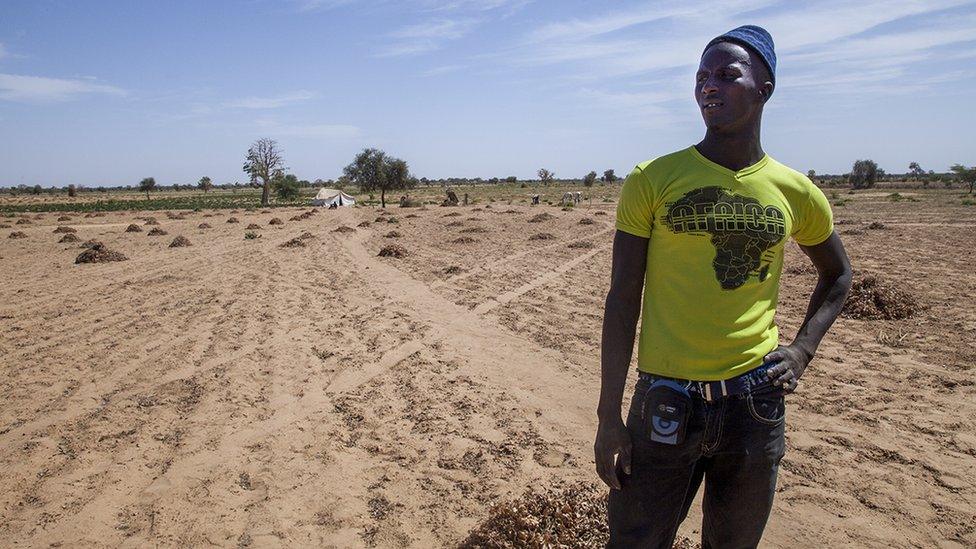
"Here we live off the land and if it doesn't work we are in so much trouble", says Amadou Souare
The UN predicts over 50 million people will be forced to leave their homes by 2020 because their land has turned to desert. This is already happening in Senegal, writes Laeila Adjovi.
Cattle herder Khalidou Badara took me up a hill in Louga, northern Senegal, to describe to me how his area has changed.
"When I was a child, I did not even dare to walk up to here because the vegetation was so dense.
"But these past few years, the wind and sand have been taking over.
"There are almost no more trees, and the grass does not grow anymore, and so each year, we have to go further and further away to find grazing for our cattle."
His life has become more complicated because of desertification.
He's not the only one. The UN says land degradation affects 1.5 billion people globally.
Desertification is the persistent degradation of dry land ecosystems by human activities and by climate change.
It translates into scarcer rains and decreasing soil quality, which leads to less grazing for livestock and lower crop yield.
Lost land
Each year, UN figures say, 12 million hectares of land are lost. That's land where 20 million tonnes of grain could have been grown.
People living off the land feel they have no choice but to migrate.
In another part of Louga - the village of Pendayayake - I met Cheikhou Lo.
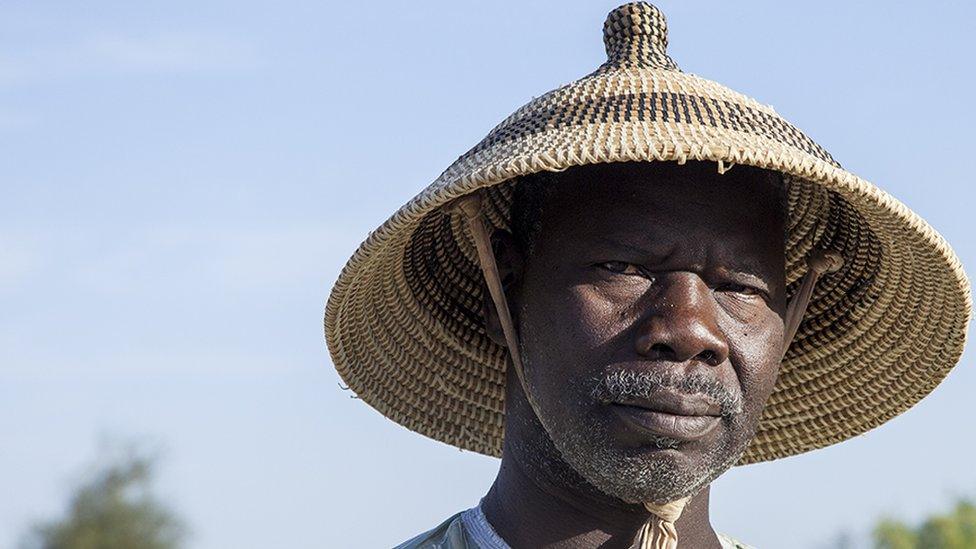
Cheikhou Lo says he can't work because of the drought
He had sown hectares of peanuts and beans in the hope of selling them.
But lack of rain and soil erosion mean the peanuts and beans have not ripened.
His failed harvest is only good to feed animals.
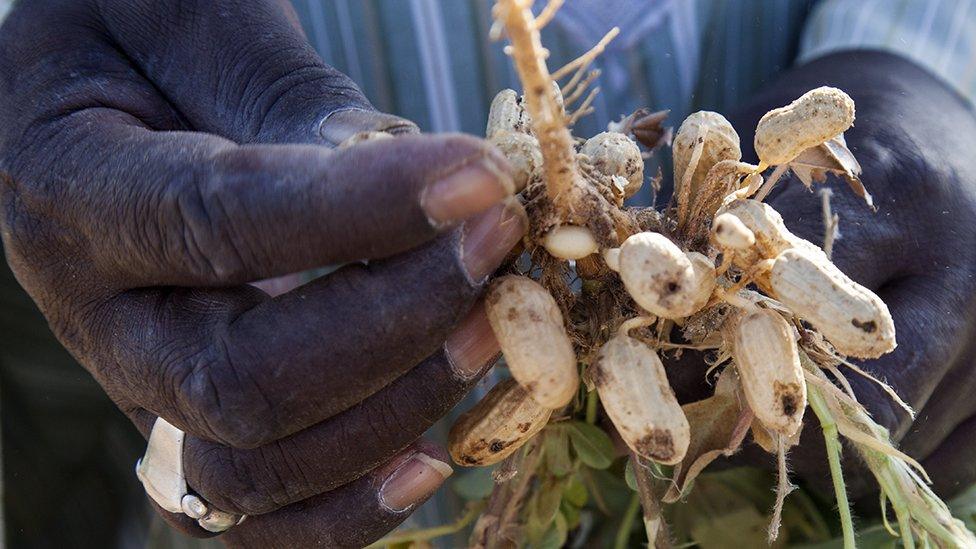
Cheikhou Lo's peanut harvest has been ruined this year
"Years ago, there was more rain and we were able to produce more," he told me.
"We could live on the crops until the next rainy season. Now, with that drought, we can't work.
"If we had boreholes and sufficient means, we could grow vegetables, plant trees, and we could stay here".
"But if not, many have to leave and go elsewhere to be able to survive."
Forced to leave
His 27-year-old nephew Amadou Souare added that in the village there is only one borehole and not enough means to dig another one.
"Here we live off the land," he said.
"And if that does not work, we are in so much trouble."
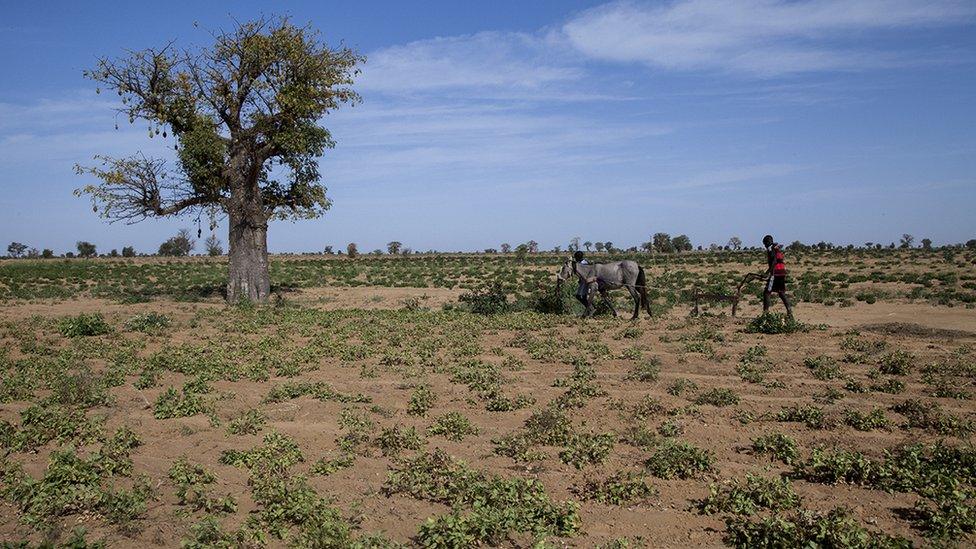
There used to be much more rain in northern Senegal
Many young people from the village have left. Cheikou Lo's own children, now adults, went to find jobs in Dakar.
Some have travelled to Gabon, others are planning to go to Europe or Brazil.
"We would rather they stayed here to develop the village but with no jobs and no means, how can we ask them to stay?" he asked.
A wall of trees
One project is trying to slow the effects of desertification.
The Great Green Wall initiative aims to create a barrier of vegetation in vulnerable areas across the continent, from Senegal to Djibouti.
The organisation says hundreds of thousands of trees have already been planted in the region.
In Senegal, the wall is intended to make a 545km (338 mile) long curtain of vegetation.
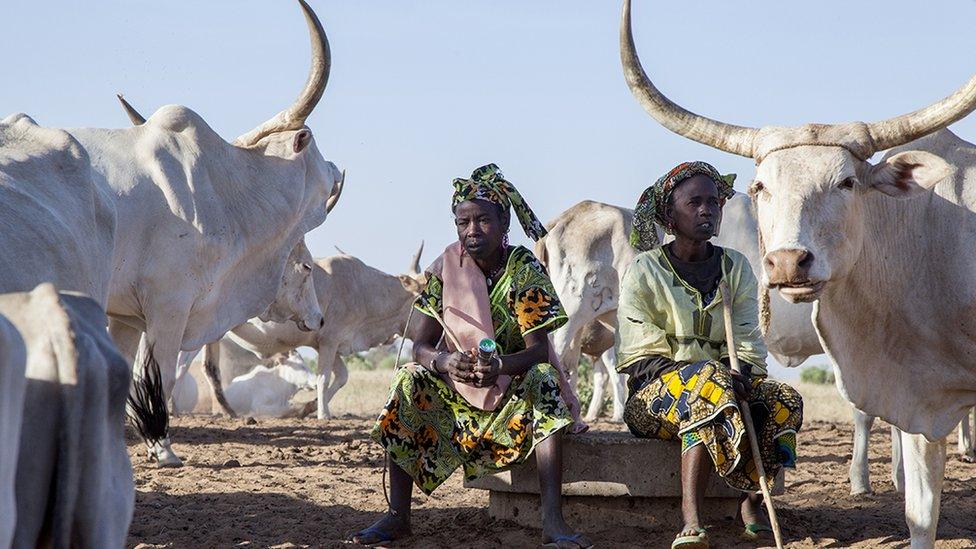
People may not be able to wait the 10 years the trees will take to grow
The organisation also makes fodder banks for herders, vegetable gardens to prevent malnutrition and teaches children how to protect the environment.
The idea is to meet minimal living conditions so people can survive.
After all, El Hadj Goudiaby from the national agency of the Great Green Wall explained, the trees will only have an impact in 10-15 years' time.
"Can people here really wait that long? No."
Pushed by the desert
Month by month, people continue to leave. A few hours away, Dakar, the capital city, offers hope of a better life.
Malik Souare grew up in Pendayayake.
Unable to live off the land, he decided to move to Dakar, and found a job as a driver.
But now, he dreams of going even further away.
"You know, everyone wants to get ahead. So I would prefer to leave. Go to England maybe. That is the place where my hopes are now," he said.
For more and more rural communities at the mercy of the environment, migration appears to be the only choice.
According to the UN, over 50 million people could move from the desertified areas of sub-Saharan Africa towards North Africa and Europe by 2020.
Pushed by the desert and pulled by opportunity, more and more people like Mr Souare will picture their future abroad.